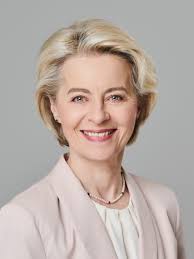
Introduction
Ursula von der Leyen, as the President of the European Commission since December 2019, plays a pivotal role in shaping the future of the European Union (EU) during a time of significant global challenges. Her policies and leadership have become more crucial than ever as the EU faces economic recovery, geopolitical tensions, and climate change commitments. Understanding her strategies and priorities provides insight into the direction the EU is heading in 2023.
Key Policies and Initiatives
In recent months, von der Leyen has focused on several critical issues, including economic stability in the aftermath of the COVID-19 pandemic and addressing rising energy prices exacerbated by the ongoing conflict in Ukraine. One of her notable initiatives has been the European Green Deal, aimed at making Europe the first climate-neutral continent by 2050. This ambitious plan not only targets significant reductions in greenhouse gas emissions but also seeks to bolster the EU’s economy by investing in green technologies.
Furthermore, von der Leyen has prioritized digital transformation within the EU, outlining strategies to enhance digital infrastructure and ensure that European businesses remain competitive in the global market. The Digital Compass 2030 strategy highlights ambitious goals for digital advancements, including improved connectivity and support for digital skills among the workforce.
Leadership During Crises
Von der Leyen’s leadership has been tested by various crises, the most prominent being the ongoing war in Ukraine. Her administration has coordinated responses to provide humanitarian aid and economic support to Ukraine, while also uniting EU member states in imposing sanctions against Russia. This approach has reaffirmed the EU’s commitment to maintaining peace and stability in Europe.
Additionally, her decisive response regarding the energy crisis, including negotiations to secure alternative gas supplies, demonstrates her proactive stance in ensuring energy security for Member States. The recent strategic commitments have involved diversifying energy imports and investing in renewable sources to reduce dependency on Russian oil and gas.
Conclusion
Ursula von der Leyen’s tenure as President of the European Commission marks a critical period in EU history. Her leadership is characterized by the pursuit of a sustainable future through the Green Deal, digital transformation, and strong responses to geopolitical challenges. Looking ahead, her ability to navigate these complex issues will not only impact EU member states but also set a precedent for global climate policy and international relations. As we analyze her continued influence, it is clear that von der Leyen is steering the EU towards a more resilient and cohesive future amid uncertain times.



